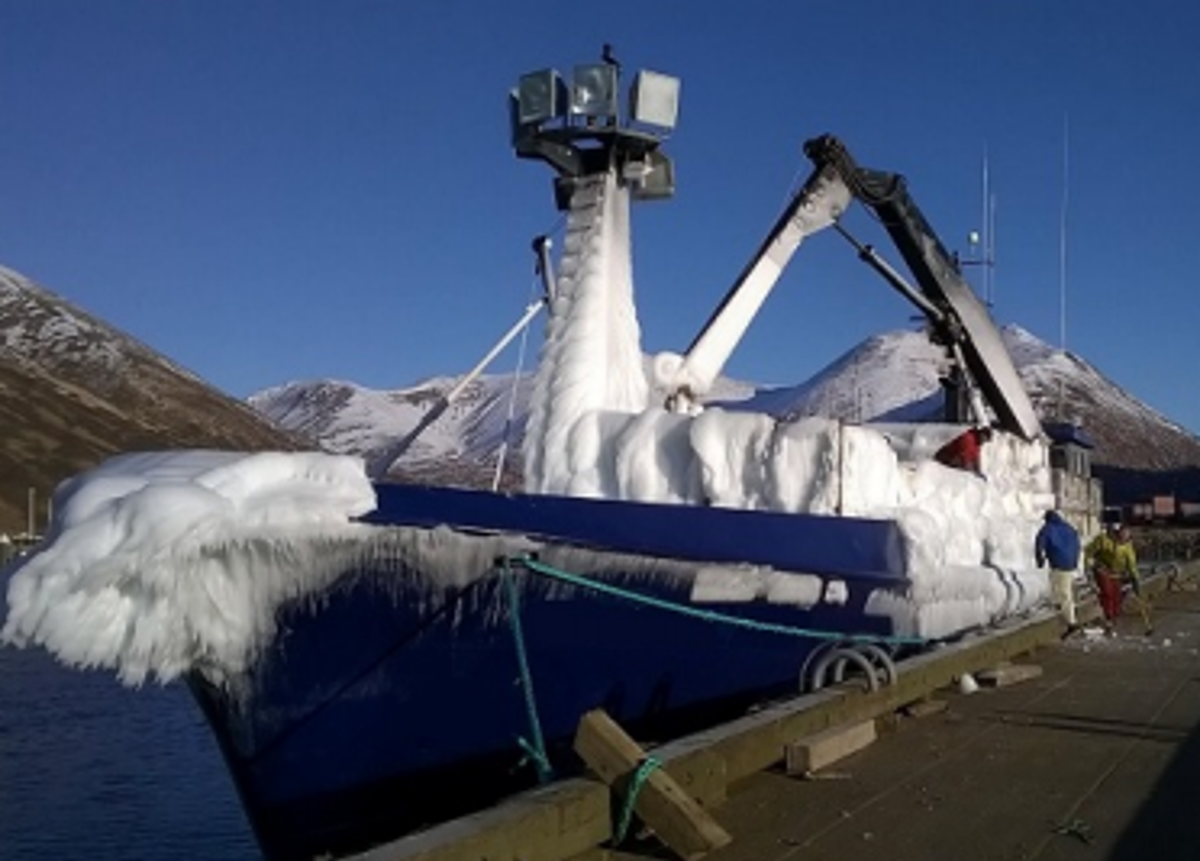USCG: Remain upright by fully understanding vessel stability
- Safety Flash
- Published on 15 November 2017
- Generated on 2 July 2025
- IMCA SF 29/17
- 2 minute read
Jump to:
The United States Coast Guard (USCG) has published Safety Alert 11-17 relating to vessel stability and watertight integrity.
What happened?
Recently, a marine casualty involving a fishing vessel in the Bering Sea resulted in multiple fatalities and complete loss of the vessel.

The Coast Guard notes:
"A Marine Board of Investigation is currently analyzing the various circumstances surrounding the casualty. Although the investigation is not complete, testimony and fact finding indicate that vessel owners, operators, and crews should give special consideration to vessel stability concerns.
"The need for operators to understand their vessel’s Stability Instructions (SI) cannot be overstated. It is important to understand the document. Operators and crew should seek out opportunities to further their knowledge of stability via courses, training, workshops, and visits from Naval Architects. They should also take advantage of other various initiatives, both mandatory and voluntary, to discuss and compare a vessel’s current SI to the actual loaded condition prior to departing port. An independent review of a vessel’s loaded condition, equipment, and operations can often provide important insights."
The Coast Guard provides guidance on:
- steps to significantly reduce the risk of capsizing
- confirming the accuracy of stability instructions in the context of conversion or change
- the risk of icing adding to dangerous instability.
The full Coastguard Safety Alert 11-17 can be found here.
Related safety flashes
-
IMCA SF 03/14
13 March 2014
IMCA Safety Flashes summarise key safety matters and incidents, allowing lessons to be more easily learnt for the benefit of the entire offshore industry.
The effectiveness of the IMCA Safety Flash system depends on the industry sharing information and so avoiding repeat incidents. Incidents are classified according to IOGP's Life Saving Rules.
All information is anonymised or sanitised, as appropriate, and warnings for graphic content included where possible.
IMCA makes every effort to ensure both the accuracy and reliability of the information shared, but is not be liable for any guidance and/or recommendation and/or statement herein contained.
The information contained in this document does not fulfil or replace any individual's or Member's legal, regulatory or other duties or obligations in respect of their operations. Individuals and Members remain solely responsible for the safe, lawful and proper conduct of their operations.
Share your safety incidents with IMCA online. Sign-up to receive Safety Flashes straight to your email.